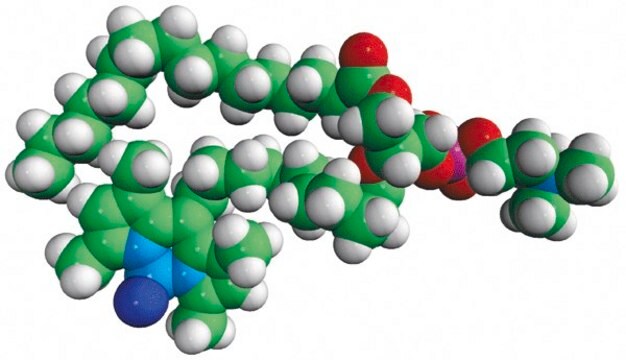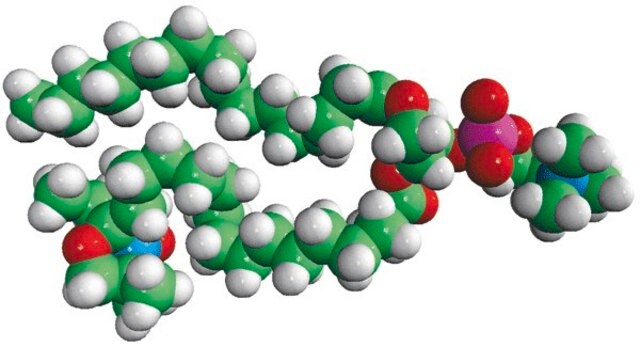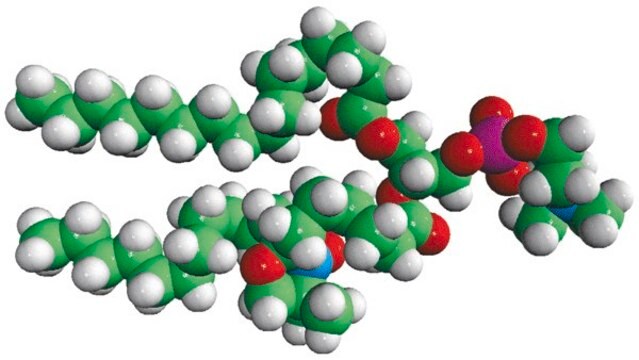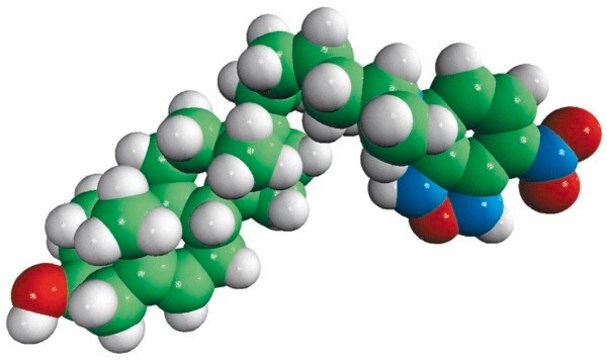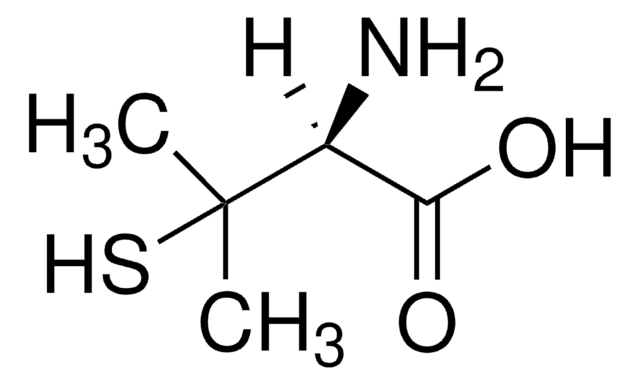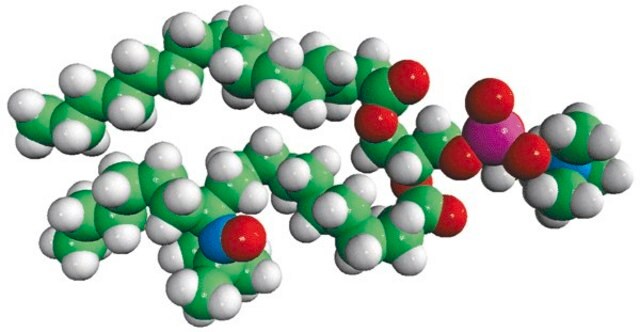810604C
Avanti
16:0-16 Doxyl PC
Avanti Research™ - A Croda Brand 810604C
Synonym(s):
1-palmitoyl-2-stearoyl-(16-doxyl)-sn-glycero-3-phosphocholine
About This Item
Recommended Products
Assay
>99% (TLC)
form
liquid
packaging
pkg of 1 × 1 mL (810604C-1mg)
manufacturer/tradename
Avanti Research™ - A Croda Brand 810604C
concentration
1 mg/mL (810604C-1mg)
lipid type
ESR probes
shipped in
dry ice
storage temp.
−20°C
General description
Application
- in bilayers or membranes to study the distribution of the lipid-attached doxyl electron paramagnetic resonance (EPR) spin label
- as spin-labelled lipid in multilamellar vesicles (MLVs) to measure membrane fluidity
- as a spin-labeled deep quencher in small unilamellar vesicles (SUVs) for nitroxide lipid quenching experiments
Packaging
Preparation Note
Legal Information
Signal Word
Danger
Hazard Statements
Precautionary Statements
Hazard Classifications
Acute Tox. 3 Inhalation - Acute Tox. 4 Oral - Aquatic Chronic 3 - Carc. 2 - Eye Irrit. 2 - Repr. 2 - Skin Irrit. 2 - STOT RE 1 - STOT SE 3
Target Organs
Central nervous system, Liver,Kidney
WGK
WGK 3
Choose from one of the most recent versions:
Certificates of Analysis (COA)
Sorry, we don't have COAs for this product available online at this time.
If you need assistance, please contact Customer Support.
Already Own This Product?
Find documentation for the products that you have recently purchased in the Document Library.
Our team of scientists has experience in all areas of research including Life Science, Material Science, Chemical Synthesis, Chromatography, Analytical and many others.
Contact Technical Service